We can determine soil moisture by suction tension or vacuum. This suction tension is measured by means of a tensiometer. This is a hollow tube with a porous ceramic at the bottom.
Porous means that the ceramic behaves like pores, so to speak, and the tube therefore functions as an artificial root of a plant. It allows moisture to pass through according to the environment. We explain this further below.
The tube is sealed at the top by a rubber stopper. Before it is sealed, the tube is filled with demineralised water and placed in the bottom. The water can now enter or exit the tube through the ceramic.
When the soil becomes drier, water will be sucked out of the tube, creating an underpressure in the tube. When this underpressure equals the soil suction pressure, no more water will be sucked out of the tube.
Then, when the soil becomes moist again due to rain or a watering, for example, the Tensiometer will suck the water back from the soil due to the underpressure in the tube. This lowers the vacuum until it equals the soil suction again.
When the soil contains so much water that it is saturated, the water can flow freely in and out of the tube. There is then no suction pressure from the soil and so the pressure in the tube will be equal to the ambient pressure.
The tensiometer is thus seen as an artificial root of a plant in which the negative pressure is always balanced with the soil suction tension.
We can use this as a measure of the suction tension a plant or crop needs to exert to absorb water from the soil. Soil moisture is measured in hPa, which stands for Hectopascal.
What is the ideal soil moisture for you depends on your personal application. We are happy to help you accurately and reliably measure and monitor the desired soil moisture with one of our tensiometers. View our product range here.
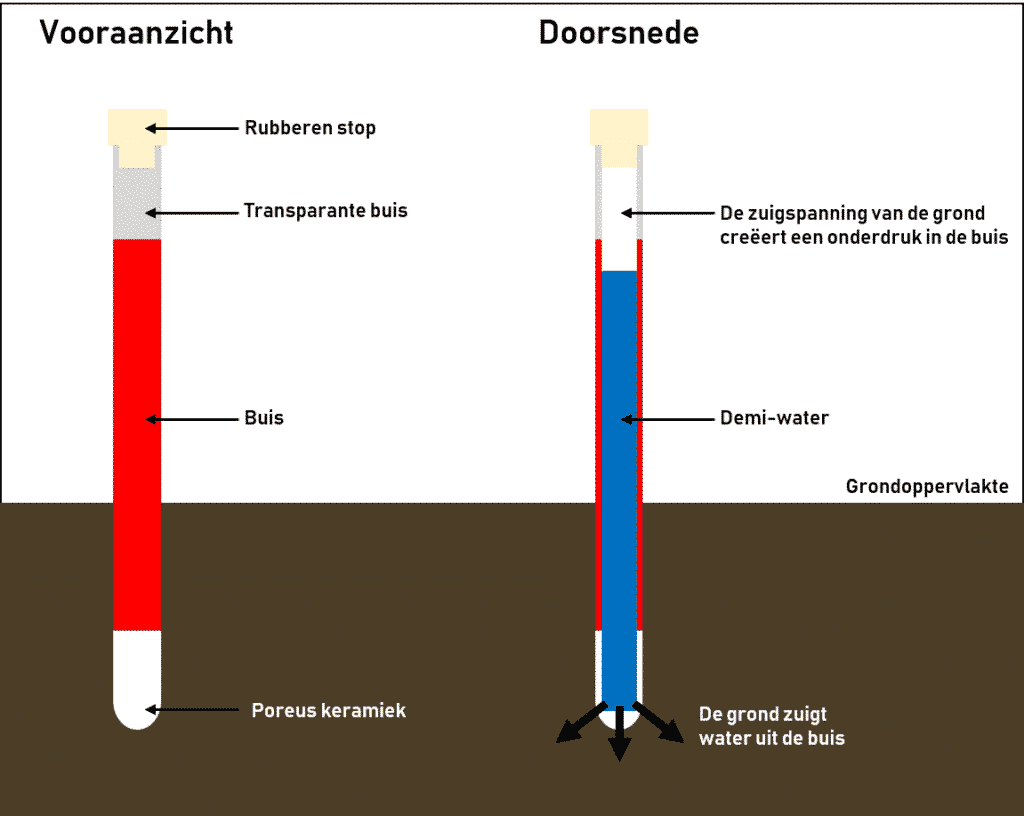
-
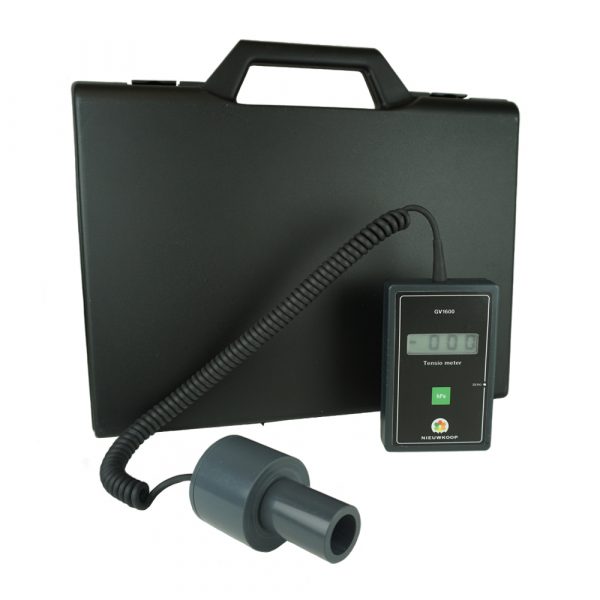 Tensiometer digital, GV1600€395,00 excl. VAT
Tensiometer digital, GV1600€395,00 excl. VAT -
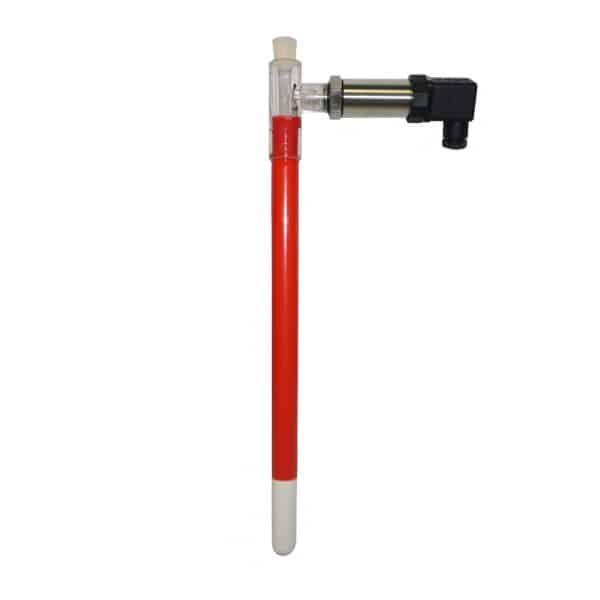 Tensiometer 30/60/90 cm, 4-20 mA output€310,00 – €314,00 excl. VAT
Tensiometer 30/60/90 cm, 4-20 mA output€310,00 – €314,00 excl. VAT -
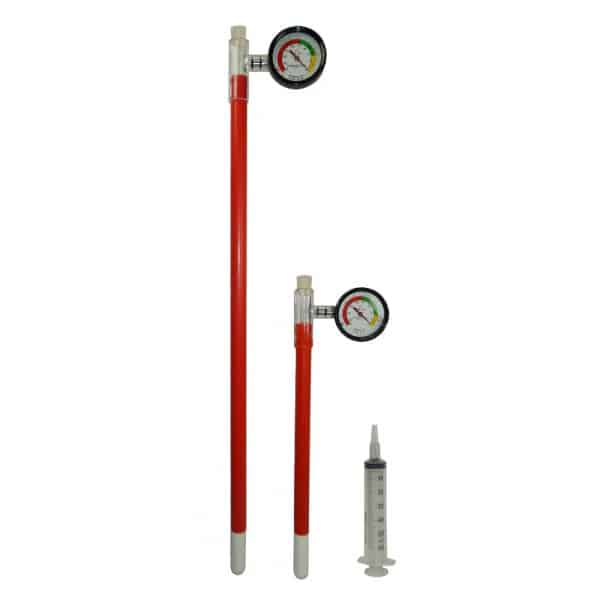 Tensiometer analogue, 30/60 cm€115,00 – €117,00 excl. VAT
Tensiometer analogue, 30/60 cm€115,00 – €117,00 excl. VAT -
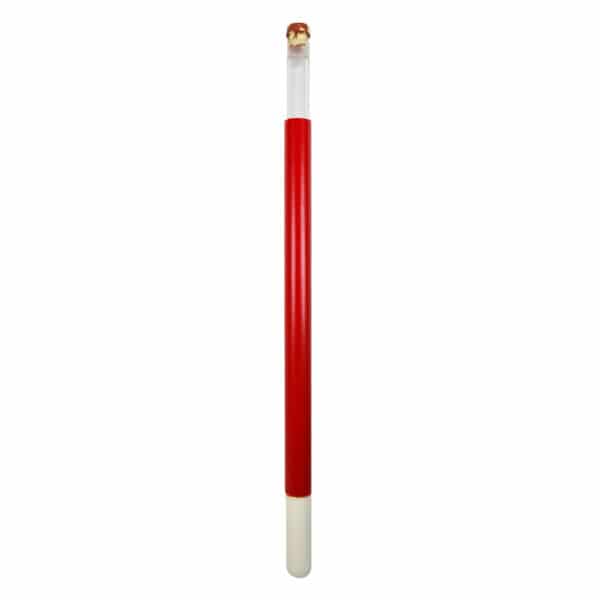 Tensiosensor incl. plug, 30/60/90 cm€35,00 – €39,00 excl. VAT
Tensiosensor incl. plug, 30/60/90 cm€35,00 – €39,00 excl. VAT